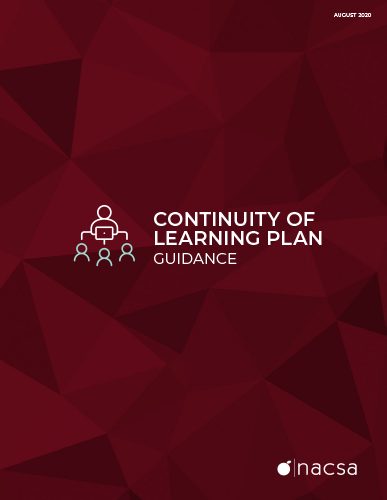 NACSA’s Continuity of Learning (COL) Resource
NACSA’s Continuity of Learning (COL) Resource
School will look different this year, in every school and in every community. Given the likelihood that instruction will occur across multiple settings, schools must ensure students are learning, no matter their environment.
Continuity of Learning (COL) plans must outline how schools will meet students’ need in multiple modalities and locations—including academic needs and additional considerations that are important to school quality and student success and respond to the specific needs of the community. Authorizers should require schools to design and submit continuity of learning (COL) plans for all students, with specific supports outlined for low-income students, students with disabilities, and English Language Learners.
- A COL plan must outline how schools will meet students’ needs in multiple modalities and locations—including academic needs, technology access, food services, and mental and socioemotional health supports needed to ensure that all students have an equitable opportunity to learn
The following guidance and resource provide flexibility and adaptability for authorizers to support schools, students, and communities. Visit AuthoRISE — NACSA’s comprehensive digital learning community — to access the full resource and other resources to strengthen your authorizing practices.
Access Now: Guidance and Tools to Ensure Continuity of Learning in a Time of Transition
Anyone can access all of our new COVID-19 resources in AuthoRISE by emailing [email protected] and requesting a login.
This resource was developed by and in collaboration with: Heather Wendling, Jason Zwara, and Erin Marwah from NACSA, The 305 Education Group, along with Jana Wilcox Lavin, Opportunity 180; Rob Kimball, Grand Valley State University; Lauren Rhim, The National Center for Special Education in Charter Schools; Ryan Marks, Colorado Charter School Institute; Bridgett Abston, Indiana Charter School Board, and Gina Post, Maine Commission.


